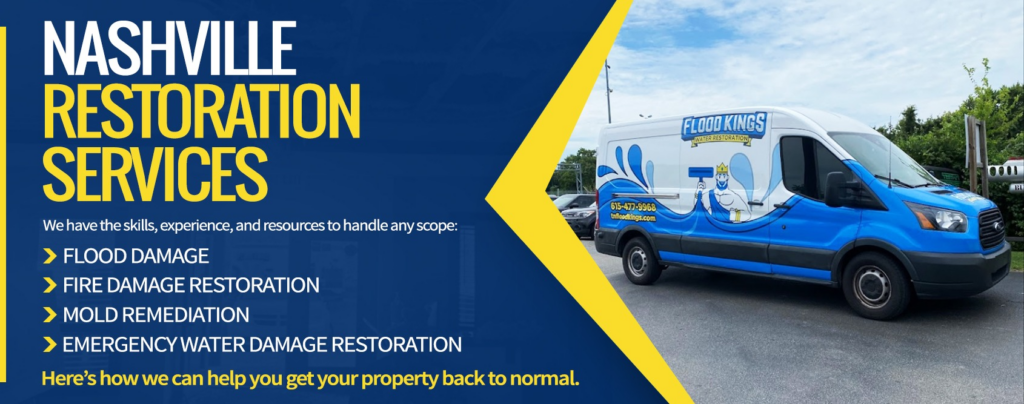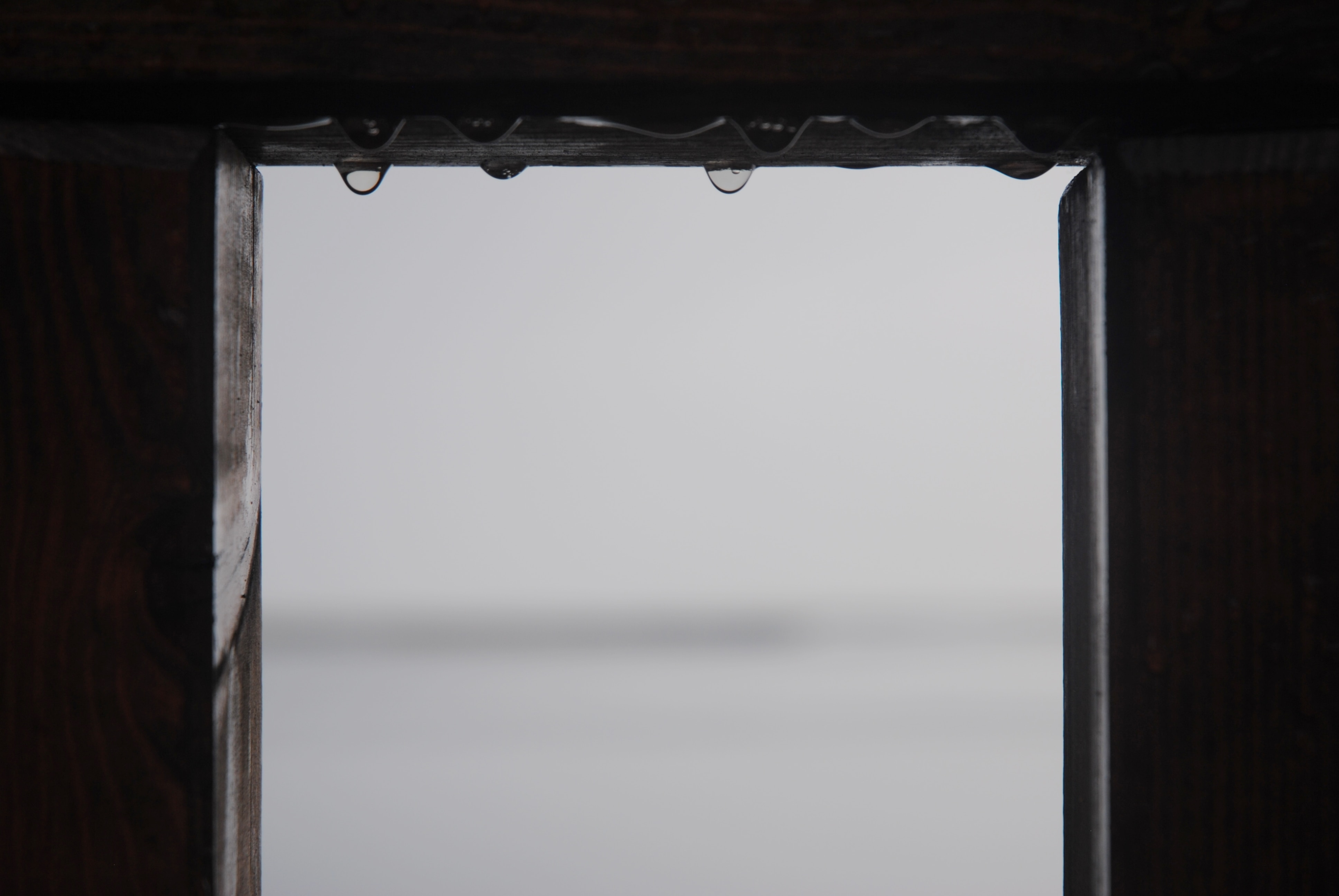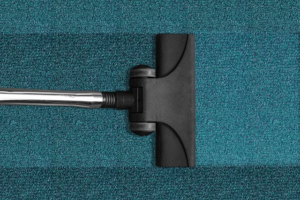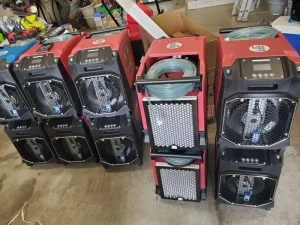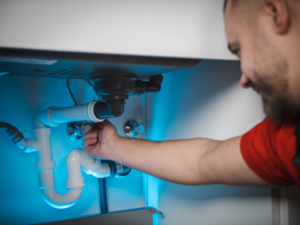As a Nashville homeowner, you might feel that you are constantly dealing with pesky repairs to keep everything in your home in good condition, which can be a pain for you and your wallet.
Water leaks can cause serious damage, so it’s important to know how to find the source of a water leak and get it fixed by a professional restoration company immediately.
Leak Detection: How Do You Know If You Have a Water Leak?
Just as there are multiple causes for water leaks, there are many ways to determine whether or not you have one.
Visible Signs of Water Leaks
Some noticeable signs you may have a water leak include:
- Water stains on ceilings, walls, and floors
- Texture changes on ceilings, walls, and floors
- Water drips and wet spots
- Wall discoloration
- Mold growth
- Sagging or chipping wall paint
Roof leaks are often more difficult to detect than plumbing ones because they do not affect your monthly utility bills. Make it a habit to check your attic a few times a year.
Invisible Signs of a Leak
Not all leaks can be seen. Some, like a slab leak, remain hidden, running underneath your foundation. Signs can include:
- A sudden increase in your water bill with no change in water usage
- Musty smell
- Reduced water pressure
- Sounds of running water
You can also routinely perform a water meter test to detect water leaks. To perform a water meter test, turn off all the water in your home and check the water meter for flow. If the water meter is still running, there’s a leak somewhere in your house.
Leaks in your main water line and plumbing system are never a pleasant discovery, but it is important to routinely check your home for hidden water leaks to get ahead of severe water damage.
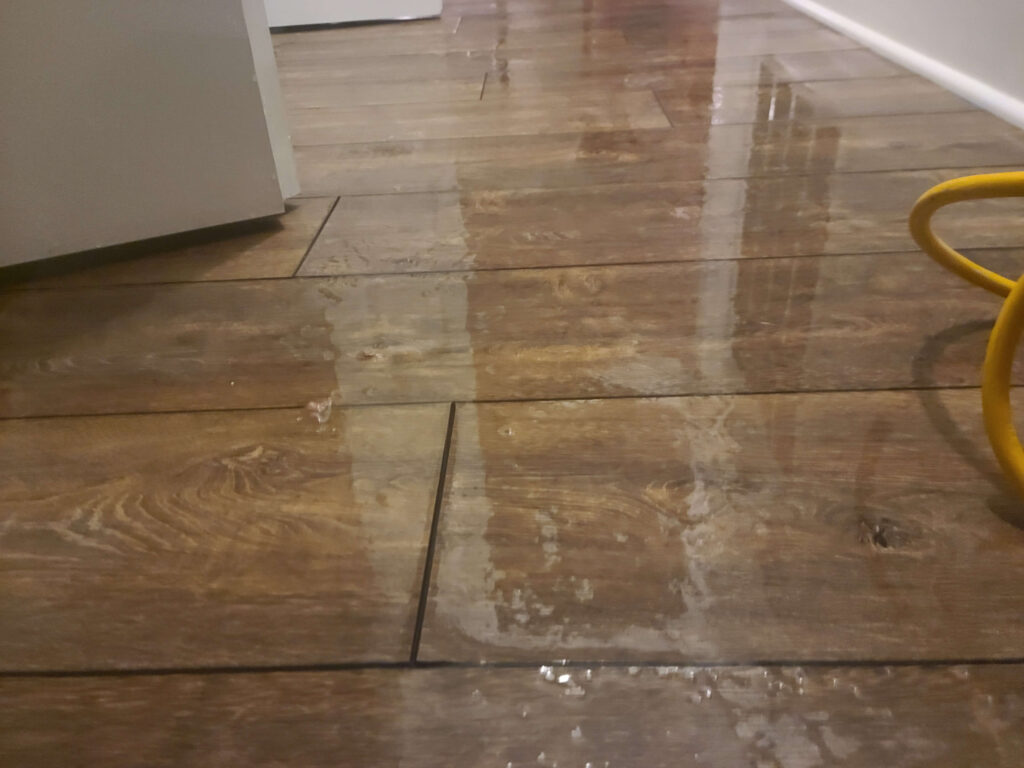
The Most Common Culprits
Once you’ve determined that you have a water leak in your home, you must find out where it’s coming from so that the problem can be addressed.
While it is highly recommended that you hire a professional plumber to find a water leak, there are a few common ones that you could certainly identify on your own:
- Pipes
- Toilets
- Water heaters
- Bathroom sinks
- Showers
Water Pipes
Pipes are generally hidden inside your home’s structure, which means that the water from a leaking pipe will be absorbed by the wood and drywall making up your walls. Signs of a wet wall include bubbling or peeling paint, damp patches, and brown splotches on drywall.
To identify these hidden leaks, assess your water bills for any sudden spikes in expenses and get a water meter reading.
Toilets
A toilet leak could come from your water pipes or an issue with the toilet’s flapper, which deteriorates over time.
Add a few drops of food coloring to your toilet tank to determine if your toilet is leaking. Wait around 15 minutes before checking on your toilet. If you come back and notice that the food coloring has seeped into the bowl, then you have confirmation of a water leak in your toilet.
Water Heaters
Usually, you’ll be able to spot this issue if you notice a puddle forming around your water heater. First, cut off the power supply as leaky water heaters are dangerous. After the power is off, inspect the pipes connected to the water heater to determine the leak’s location. Then call a plumber because fixing it on your own is not worth the risk.
Bathroom Sinks
This issue may come from a dripping faucet or a leaky pipe under the sink, causing dampness on the floor. With a leak coming from a broken p-trap, you might notice unpleasant smells in the bathroom.
To find what’s causing the problem, open up the cabinet to expose the pipes and wipe everything down so it’s totally dry. Then, run a small amount of water and watch for moisture oozing around the connections in the pipes. You’ll especially want to look near the p-trap, which may have become clogged and grown loose.
Showers
The seals around your sink will degrade with age, allowing water to trickle out and infiltrate the base of the shower or the floor. A cracked shower pan may also allow water intrusion into the lower levels of the home.
You might notice mold, a wet spot on the floor, a slow drain that indicates blockage, or leaking around the door during your shower.
To identify the source of the leak, run the shower to see if you have any water oozing from the door. If not, the leak is elsewhere: cover the drain with duct tape, then pour water into the shower. If the water level drops, you’ll know there’s a leak in the shower itself.
What Are the Three Types of Water Leaks?
There are three types of water leaks that you’ll need to know how to identify as you hunt down your problem.
- Pinhole: These are very tiny tears in pipes or tubing that allow small amounts of water to drip out. If left unchecked, they can tear further and turn into a bigger issue. On their own, they can cause fungal growth and wet drywall.
- Moderate: The most common type of leak, this isn’t a catastrophic pipe failure but a long-term, steady drip. This will lead to major water damage over time if not rectified immediately.
- Gushing: This is often due to a burst pipe, and it will cover your home in water very quickly. You can see widespread damage to floors, walls, ceilings, and appliances.
What to Do If You Detect Leaks in Your Home
Fast action is essential when dealing with a plumbing leak. Follow these steps as soon as you find where the leak is coming from.
- Turn off the water using the shut-off valve, either in the basement or near your appliance.
- If you believe there might be an electrical hazard, shut off the electricity as well.
- Call a restoration service and a plumber for assistance.
- Clean up the excess water as best you can.
- Check for other leaks that may be contributing to the issue.
Water Leak FAQs:
Can a Water Leak Go Away on Its Own?
Unfortunately, no — it’s a bad idea to assume that this issue will remediate itself. You always need to intervene should you suspect any water damage.
What Is a Silent Water Leak?
A silent water leak is one that doesn’t drip or show immediate signs. You might only realize there’s a problem when you get a shockingly high water bill or see mold growing in the area. These can cause massive water damage as they go unchecked for longer periods.
Can a Small Leak Cause Water Damage?
Small leaks can become incredibly serious over time, as they are not caught immediately. They can lead to structural damage, mold, and water wastage. No matter how small, you should get any leak checked out by a plumber and a water damage restoration company.
Getting Your Water Leak Fixed
Water leaks can often occur in pipes higher in your house and trickle down to lower levels, leaving water stains in very misleading places. To fix your water leak, you should call a plumber, as they are experienced in leak detection and remediation.
After you’ve gotten in touch with a plumber, contact TN Flood Kings: we’ll help remedy the damage and get your home back to normal.
